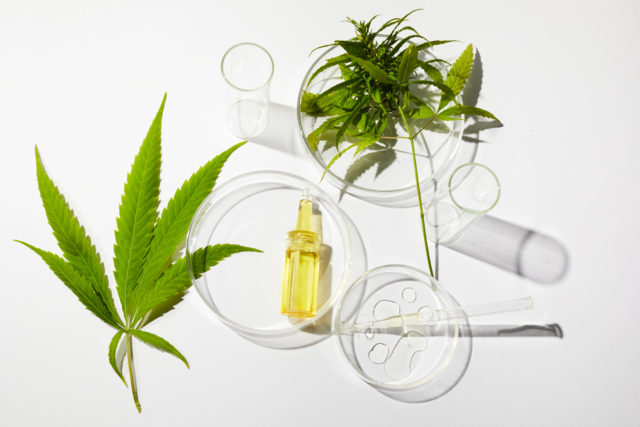
More Americans are becoming cannabidiol (CBD)-curious than ever before. That’s according to Murry Woronoff, who recently curated a survey for Adtaxi on the topic; polling over 1,000 people spanning across U.S. geographic regions, income levels, gender, and age. And the results were clear, he says.
“Twice as many people are familiar with CBD as are subscribed to cable TV,” Woronoff reports. Eighty-three percent of the survey respondents knew about CBD, and over 50% reported having tried a CBD product within the past year.
“It’s just appealing to so many people for so many reasons, and with so many products there’s a reason to try it,” Woronoff says. Nearly half of those who reported using CBD are doing so for health or medical reasons, to relieve anxiety, pain, or sleeplessness the survey indicates.
But without oversight or regulation from the federal and state governments, the world of CBD products is riddled with blundering entrepreneurs, and in some cases, outright snake oil salesmen, putting the burden on this snowballing consumer base to do their own research on where their CBD is coming from.
“With no oversight, with no regulatory safety agency looking over this, it’s a free-for-all,” says Chris Hudulla, the founder and CSO of ProVerde Labs, an accredited CBD testing laboratory.
ProVerde Labs provides full-panel testing for CBD products to identify contaminants like toxic solvents, heavy metals, salmonella and mold, as well as providing CBD isolate purity testing and certification. It’s an expensive process, he admits; and one that isn’t required by the federal government. As a result, few producers elect to invest in it.
“A lot of people are just jumping into this [industry],” Hudulla says. “Some of them don’t care about consumer quality or consumer safety or some of them just don’t know enough.”
A lot of companies play games with semantics, Hudulla says, advertising with claims like, “Contains 100% real hemp oil!”
“What is hemp oil? As a chemist who’s been working in this for almost six years now, I don’t know what hemp oil is,” Hudulla says. “It could be hemp seed oil, which contains no CBD, or it could be the resin extracted from the plant, which would be predominantly CBD.”
Over the years, working in this Wild West, he’s caught some bad actors. He describes one instance where a client called him having just bought $2,000 of CBD isolate online that had a certificate from Hudulla’s lab (which turned out to be forged) claiming 99.9% CBD purity.
“They sent me a picture and the picture is of a yellow oil. Well, these poor guys don’t know that high-purity CBD would be a white crystalline solid,” he says. “I had them send me a sample and there wasn’t a bit of CBD in it. Somebody was basically selling vegetable oil.”
In another instance, a producer was advertising the “highest quality CBD on the market” and actually challenged people to find something better. When Hudulla saw they’d been certified by his lab, he checked the certificate and noticed they’d whited out where ProVerde had reported finding pesticides. Hudualla reported them to the attorney general, then called the company and demanded they recall the product.
“The guy hung up the phone on me, and by the next day, the phone number was disconnected and the website was gone,” Hudalla says.
The worst case Hudualla describes is of a product that was being sold across different states by different brands. ProVerde discovered a very toxic fingerprint of residual solvents that was identical between the disparate products. ProVerde got its hands on a photo of what the producer was using to extract the CBD isolate.
“It was a picture of paint remover,” he says, “Like, a NAFTA paint stripper.”
Hudulla doesn’t want to scare people away from CBD. He believes in its medicinal anti-seizure, anti-inflammatory and anxiety-relieving properties. However, without federal or state regulation it’s up to consumers to make sure the companies they’re buying CBD from are willing to invest in third-party testing by labs like ProVerde Labs, Botanica Labs, ACS Laboratory or another similar tester.
“You have a lot of very responsible producers who are really focused on high-quality products,” Hudulla says; it’s about having more transparency. “Producers who are willing to spend the money, whether it’s our lab or another lab, should be doing some level of third-party testing.”
With the 2018 Hemp Farming Bill, the federal government removed hemp and hemp seeds from the DEA’s list of Controlled Substances, but did not explicitly legalize it, leaving a national medicinal product industry floating around in a gray market where selling and purchasing it is “legal” according to the DEA, but no products are regulated for safety or consistency by the FDA.
And therein lies the problem with prohibition of any substance at any level. Unless it’s fully legalized, it remains unregulated—and there’s always a risk to consumers associated with that.
***
Email: [email protected]














